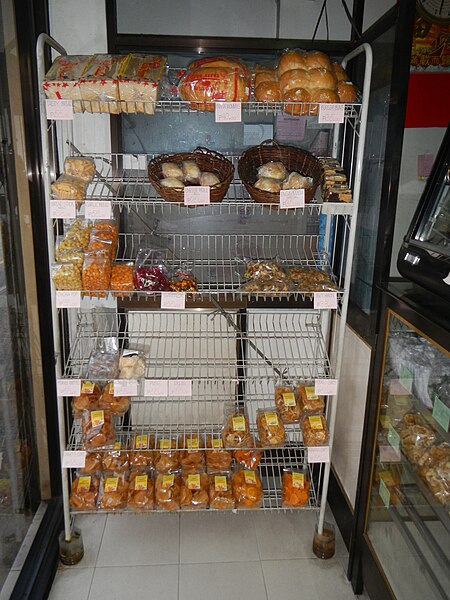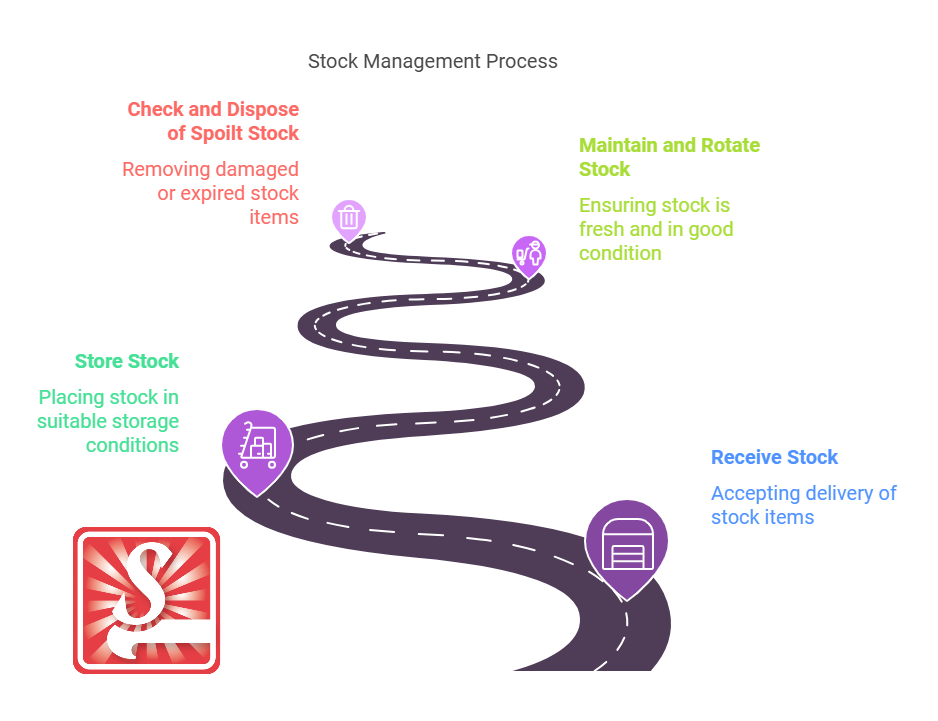Ensuring Precision in Stock Handling: Specified Tolerances in Hospitality
Posted by SkillMaker in Jan, 2025
What is a concise description of specified tolerances when receiving, storing, and maintaining stock?

Specified tolerances in receiving, storing, and maintaining stock refer to the defined parameters or limits within which stock must be accepted, stored, and maintained to ensure quality, safety, and compliance with industry standards. This includes understanding acceptable quality levels, temperature ranges, and shelf life to prevent stock loss and ensure optimal product condition.
Why do people in enterprises need specified tolerances when receiving, storing, and maintaining stock?
Enterprises need specified tolerances to maintain consistency and efficiency in their stock handling processes. By adhering to these tolerances, they can ensure product quality, minimise waste, enhance customer satisfaction, and comply with legal and health regulations. This consistent approach helps safeguard the business reputation and reduce potential financial losses.
“Specified tolerances in stock management not only prevent loss but elevate quality standards, creating a seamless and reliable supply chain.”
What are the key components or elements of specified tolerances in receiving, storing, and maintaining stock?
Key components include:
- Quality Control: Ensuring stock meets predefined quality standards upon receipt.
- Temperature Control: Maintaining appropriate storage conditions to preserve stock integrity.
- Shelf Life Management: Monitoring expiry dates and stock rotation to prevent spoilage.
- Stock Auditing: Regular checks and balances to manage stock levels and discrepancies.
- Documentation: Keeping accurate records of stock levels, conditions, and transactions.
What key terms, with descriptions, relate to specified tolerances in stock management?

Registered Trademark®
- Acceptable Quality Levels (AQL): The standard for the maximum allowable defective products.
- FIFO (First In, First Out): Inventory management system ensuring older stock is used before new stock.
- Cold Chain Management: Maintaining a consistent low-temperature storage and transportation system.
- Batch Control: Monitoring stocks based on their batch numbers for precision and traceability.
- Non-conformity Reporting: Documenting instances of stock not meeting specified tolerances.
Who is typically engaged with operating or implementing specified tolerances in stock management?
Warehouse supervisors, stock controllers, purchasing managers, and quality assurance personnel are typically involved in implementing specified tolerances in stock management. These roles work to ensure that all stock handling aligns with regulatory guidelines and business standards.
How does specified tolerances in stock management align or integrate with other components of Hospitality and Catering?

Specified tolerances in stock management complement hospitality operations by ensuring the ingredients and products used are always of superb quality, enhancing culinary excellence and customer satisfaction. They support menu planning, cost control, and efficient kitchen operations by preventing spoilage and ensuring ingredient availability.
Where can the student go to find out more information about specified tolerances in stock management?
- Food Standards Australia New Zealand
- Hospitality Professionals Association
- Safe Food Production Queensland
What job roles would be knowledgeable about specified tolerances in stock management?
Roles include:
- Stock Controllers
- Procurement Officers
- Warehouse Managers
- Quality Assurance Personnel
- Supply Chain Coordinators
What is specified tolerances in stock management like in relation to sports, family, or schools?

In sports, specified tolerances are akin to maintaining strict fitness and performance benchmarks to ensure athletes are in peak condition. Similarly, in a family setting, it involves ensuring household routines and duties are completed to set standards, keeping everything orderly and efficient. In schools, it’s like adhering to educational standards and curricula, ensuring all students achieve competency within specified learning objectives.
(The first edition of this post was generated by AI to provide affordable education and insights to a learner-hungry world. The author will edit, endorse, and update it with additional rich learning content.)


 Post Tagged with
Post Tagged with